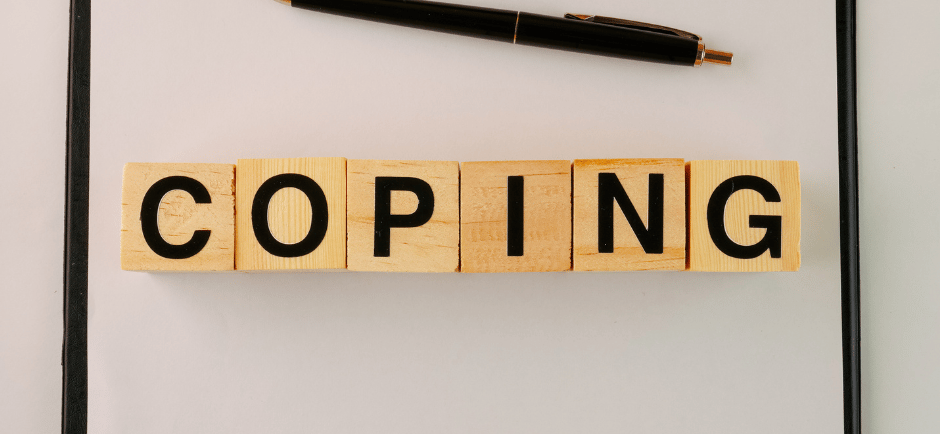The Role of Pornography Consumption as a Coping Mechanism
Discover the significant role that pornography consumption plays as a coping mechanism in dealing with various challenges and stressors. Explore its impact on individuals' psychological well-being ...


The Role of Pornography Consumption as a Coping Mechanism
Pornography consumption has become a prevalent issue in today's society, and many individuals turn to it as a coping mechanism for stress, anxiety, or trauma. While it may provide temporary relief or distraction, it is essential to understand the potential negative consequences and explore healthier alternative strategies for managing emotional distress and building resilience.
It is important to note that not everyone who consumes pornography does so as a coping mechanism. However, for some individuals, pornography can serve as a means of escape or a way to numb emotional pain. The explicit content and fantasy-driven nature of pornography can provide a temporary escape from real-life problems and emotions.
When faced with stress, anxiety, or trauma, individuals may seek ways to alleviate their emotional distress. Pornography consumption, in this context, offers a quick and easily accessible solution. It provides an immediate sense of pleasure, distraction, and relief from negative emotions. However, relying on pornography as a coping mechanism can have detrimental effects on mental health and overall well-being.
The Negative Consequences of Pornography Addiction
While pornography consumption may seem harmless at first, it can quickly escalate into an addiction with severe consequences. Some of the negative effects associated with pornography addiction include:
- Distorted Perception of Sexuality: Frequent exposure to explicit sexual content can distort one's perception of healthy relationships and sexual intimacy.
- Decreased Emotional Connection: Excessive pornography consumption can lead to a decreased ability to form and maintain emotional connections with real-life partners.
- Increased Sexual Dysfunction: Pornography addiction has been linked to an increased risk of sexual dysfunction, such as erectile dysfunction and decreased libido.
- Negative Impact on Mental Health: Pornography addiction can contribute to feelings of guilt, shame, and low self-esteem, as well as exacerbate symptoms of anxiety and depression.
- Escalation to Extreme Content: Over time, individuals may find themselves seeking more explicit and extreme forms of pornography to achieve the same level of arousal, leading to potential exposure to illegal or harmful content.
Healthier Alternative Strategies for Coping and Building Resilience
Recognizing the potential harm of pornography addiction, it is crucial to explore healthier alternative strategies for managing emotional distress and building resilience. Here are some strategies to consider:
- Seeking Professional Help: If you find yourself struggling with pornography addiction or using it as a coping mechanism, consider reaching out to a mental health professional who can provide guidance and support.
- Engaging in Physical Activities: Regular exercise has been proven to reduce stress, anxiety, and depression. Find activities you enjoy, such as walking, swimming, or yoga, and incorporate them into your routine.
- Practicing Mindfulness and Meditation: Mindfulness and meditation techniques can help you develop a greater sense of self-awareness, manage stress, and improve overall well-being.
- Building a Supportive Network: Surround yourself with supportive friends and family who can provide emotional support and understanding during challenging times.
- Exploring Creative Outlets: Engaging in creative activities, such as painting, writing, or playing a musical instrument, can serve as a healthy outlet for emotions and provide a sense of accomplishment.
- Developing Healthy Coping Mechanisms: Identify healthy coping mechanisms that work for you, such as journaling, deep breathing exercises, or engaging in hobbies that bring you joy and relaxation.
- Practicing Self-Care: Prioritize self-care activities that promote physical, mental, and emotional well-being, such as getting enough sleep, eating nutritious meals, and engaging in activities that bring you pleasure.
Conclusion
While pornography consumption may serve as a coping mechanism for stress, anxiety, or trauma, it is essential to recognize the potential negative consequences and explore healthier alternatives. Pornography addiction can have detrimental effects on mental health, relationships, and overall well-being. By seeking professional help, engaging in physical activities, practicing mindfulness, building a supportive network, exploring creative outlets, developing healthy coping mechanisms, and prioritizing self-care, individuals can manage emotional distress and build resilience in a healthier and more sustainable way.


